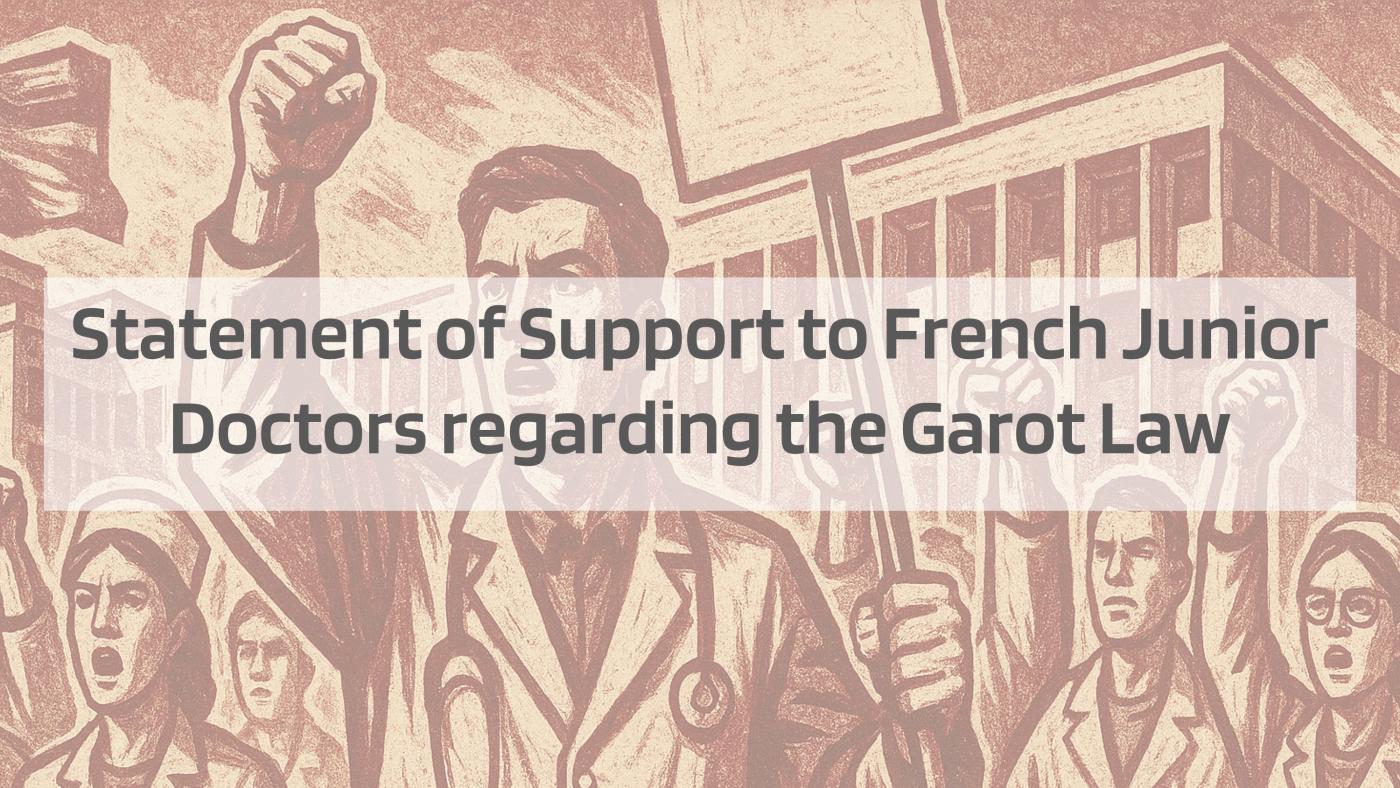Statement of Support to French Junior Doctors regarding the Garot Law

European Junior Doctors (EJD) express their full support and solidarity with French junior doctors, and in particular with our member organization ISNI, in their mobilization against the proposed “Garot Law.”
This legislative initiative, currently under discussion in the French Parliament, poses serious concerns regarding professional autonomy, working conditions, and fundamental European rights. By limiting the freedom of establishment of junior doctors in underserved areas and compulsory participation in on-call duty, the proposed law adopts a coercive logic that risks undermining both healthcare sustainability and the well-being of professionals.
As highlighted in EJD’s 2024 report, From Mandate to Motivation, real and lasting solutions to healthcare workforce shortages must be based on motivation, fairness, and adequate working conditions - not on forced service. Our report underscores that: 1) coercive policies erode trust in public health systems and can accelerate migration or early career disengagement; 2) voluntary service in underserved areas, when backed by meaningful incentives, career prospects, and supportive environments, is more sustainable; and 3) protecting professional autonomy and creating attractive conditions are essential to preventing burnout and ensuring high-quality care.
Beyond its national implications, EJD is concerned about the compatibility of the Garot Law with EU law. The proposed restrictions may:
Conflict with Article 45 and 49 of the Treaty on the Functioning of the European Union (TFEU) by infringing on the right of establishment and free-mobility, cornerstones of EU values and freedoms.
Potentially breach the Charter of Fundamental Rights of the European Union, which protects freedom to choose one’s occupation (Article 15), the right to fair working conditions (Article 31), and professional freedom (Article 16).
EJD fully recognizes the challenge of ensuring adequate healthcare coverage across regions. However, public interest goals must be pursued through proportionate, non-discriminatory, and evidence-based policies. The EU legal framework demands that any restriction of fundamental freedoms be justified, necessary, and accompanied by less restrictive alternatives—such as voluntary deployment schemes, housing or tax incentives, and better career support.
We therefore join French junior doctors in calling for: fair employment conditions and adequate remuneration; a voluntary and incentivized approach to service provision in underserved areas and the preservation of professional choice and mobility, in line with EU values.
We urge the French Senate to reject the Garot Law and to engage in constructive dialogue with healthcare professionals. EJD remains committed to defending the rights of junior doctors across Europe and promoting sustainable workforce policies that foster professional wellbeing, trust, quality of care and patient safety.
EJD stands firmly with ISNI and the French junior doctors.
The Executive Board of EJD
Associated Files
You might also enjoy
-

Protecting the Mental Health of Europe’s Health Workforce
MeND Survey Report
-

European and Latin American Physicians Declaration on the Protection of Life and Health in Gaza
As physicians speaking on behalf of leading professional institutions and associations across Europe and Latin America, we denounce the grave suffering endured by the civilian population of Gaza.
-

European Junior Doctors condemns attacks on healthcare and the obstruction of humanitarian aid in Gaza amid unfolding famine
European leaders must uphold international humanitarian law, protect civilians and healthcare workers, and take immediate action to stop the devastation
